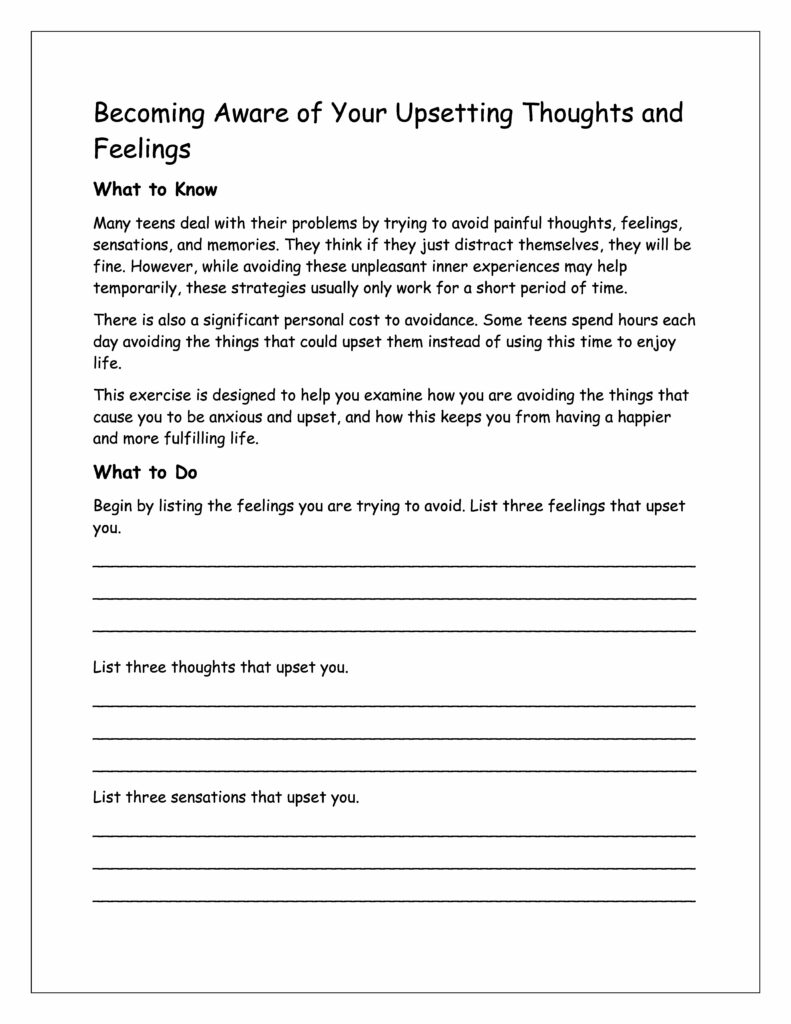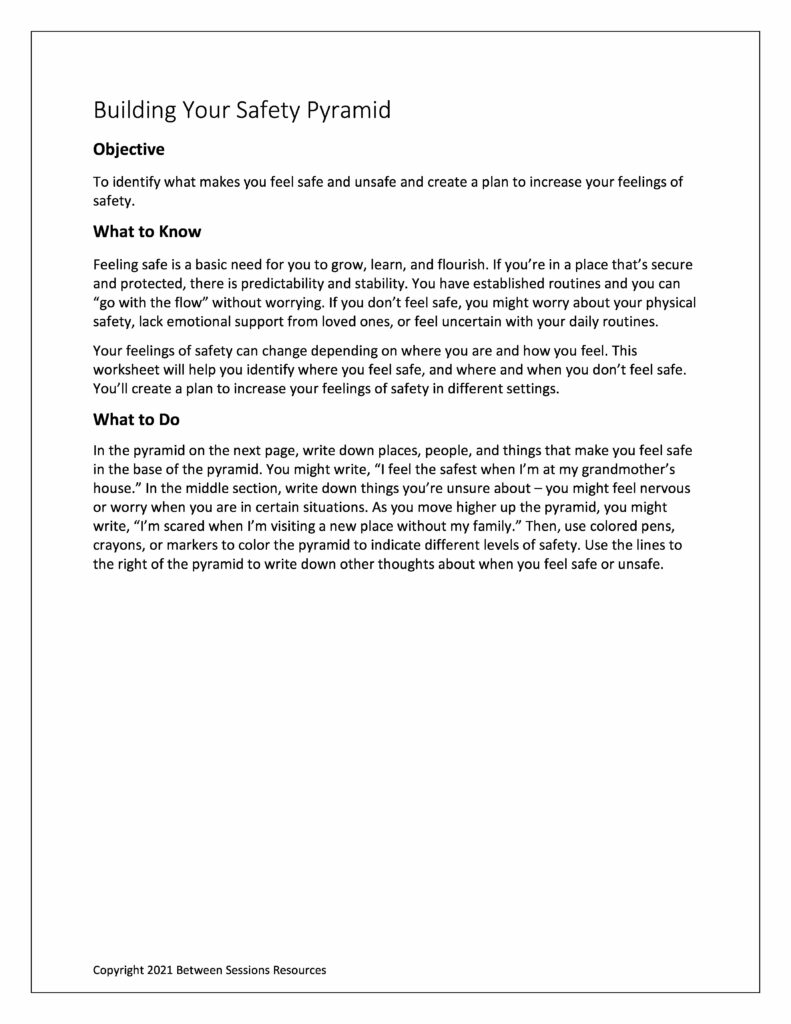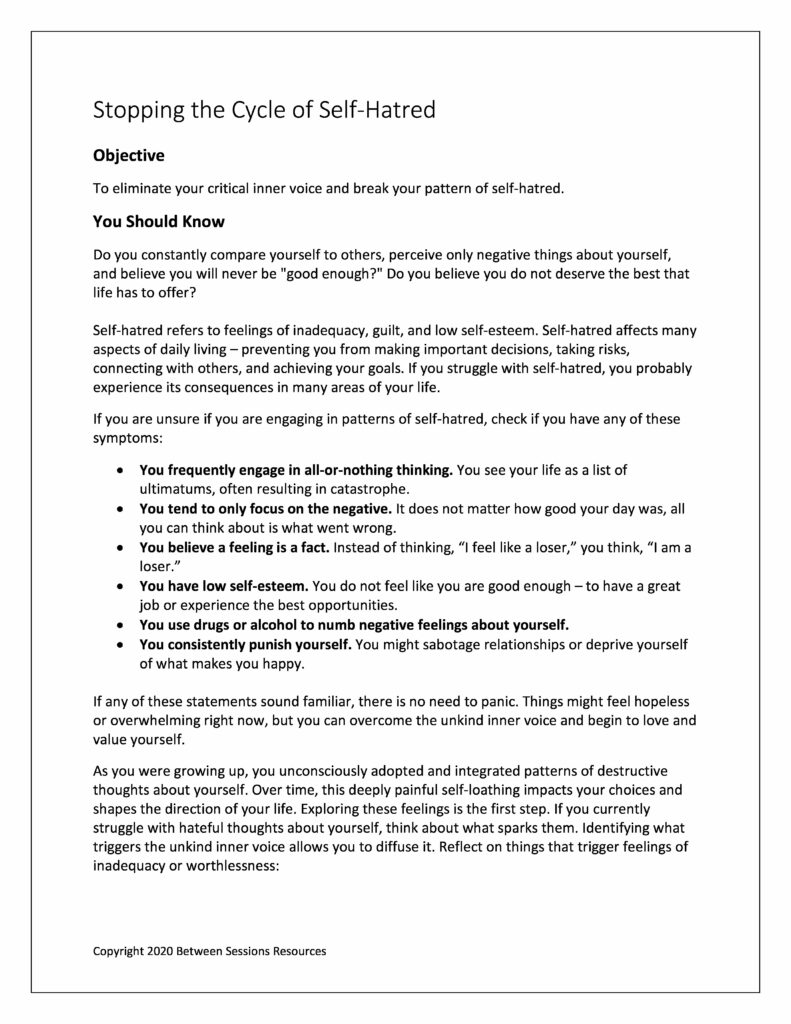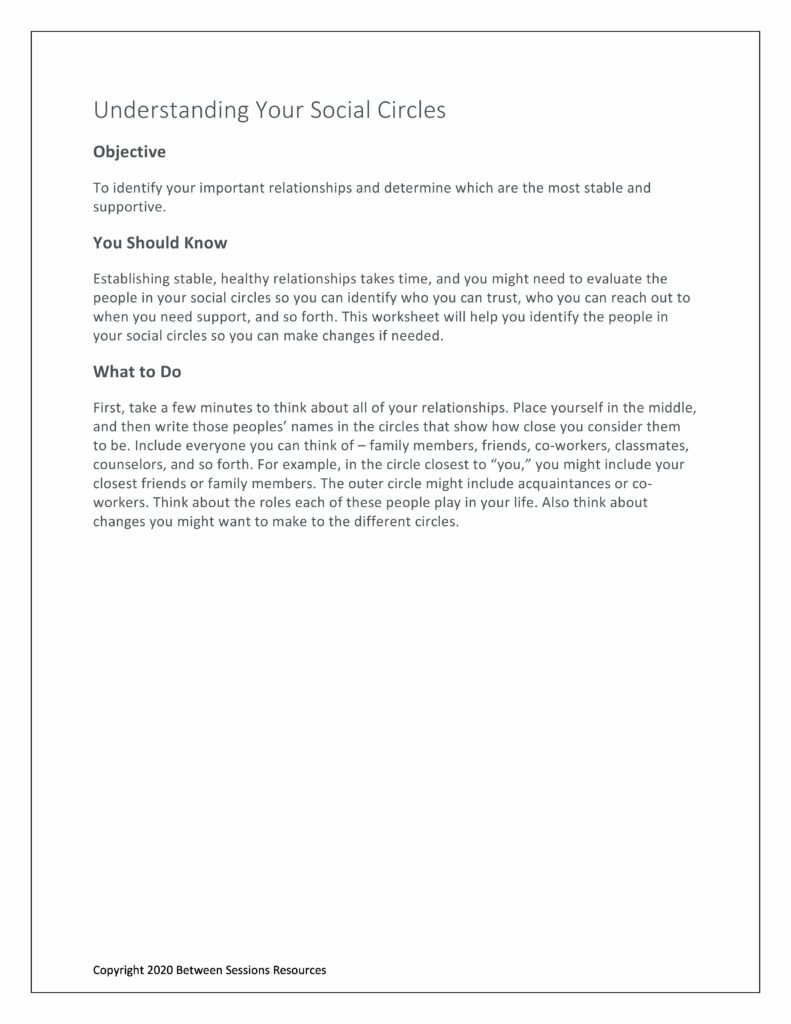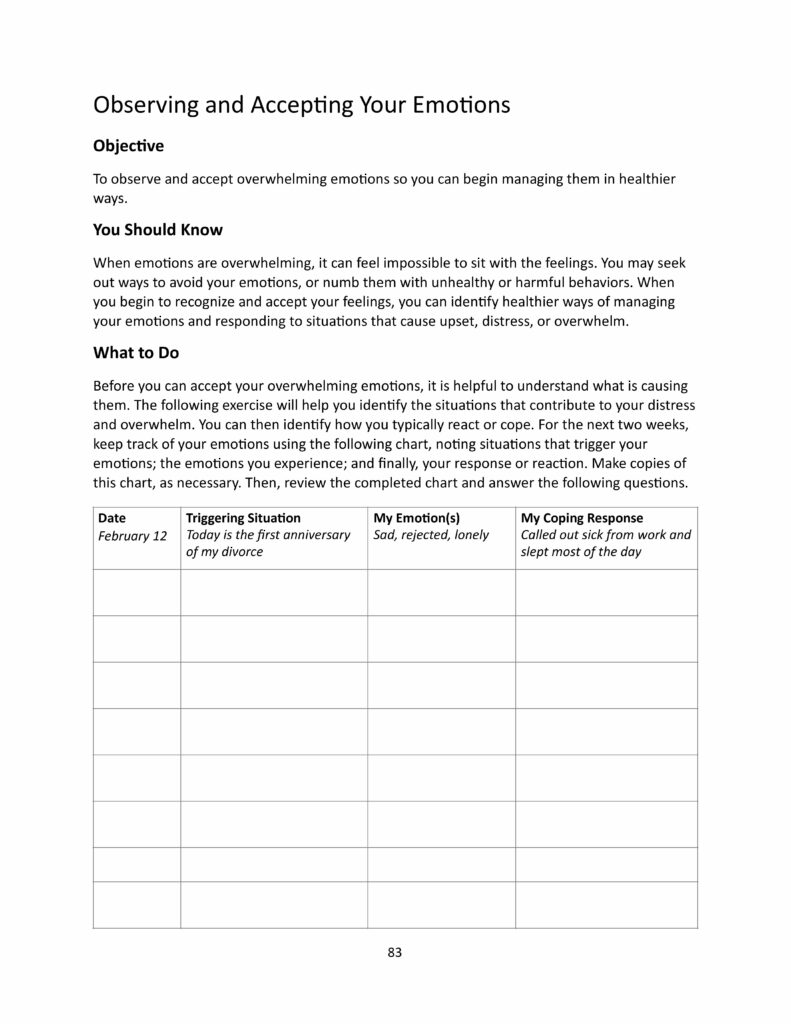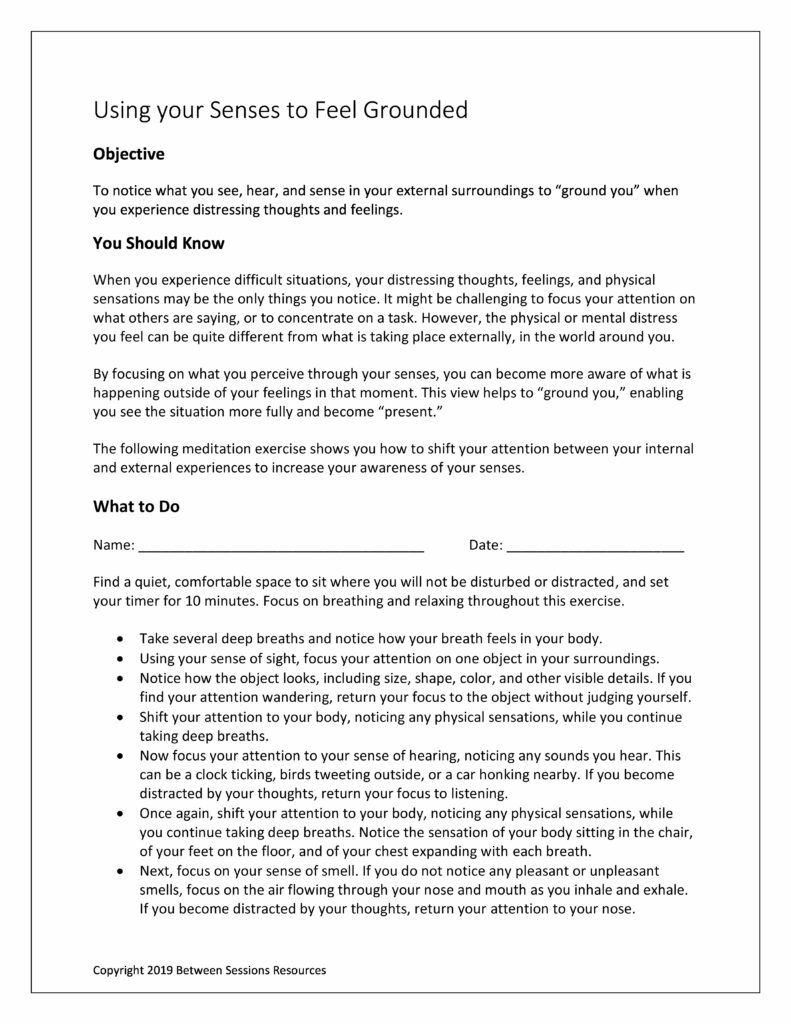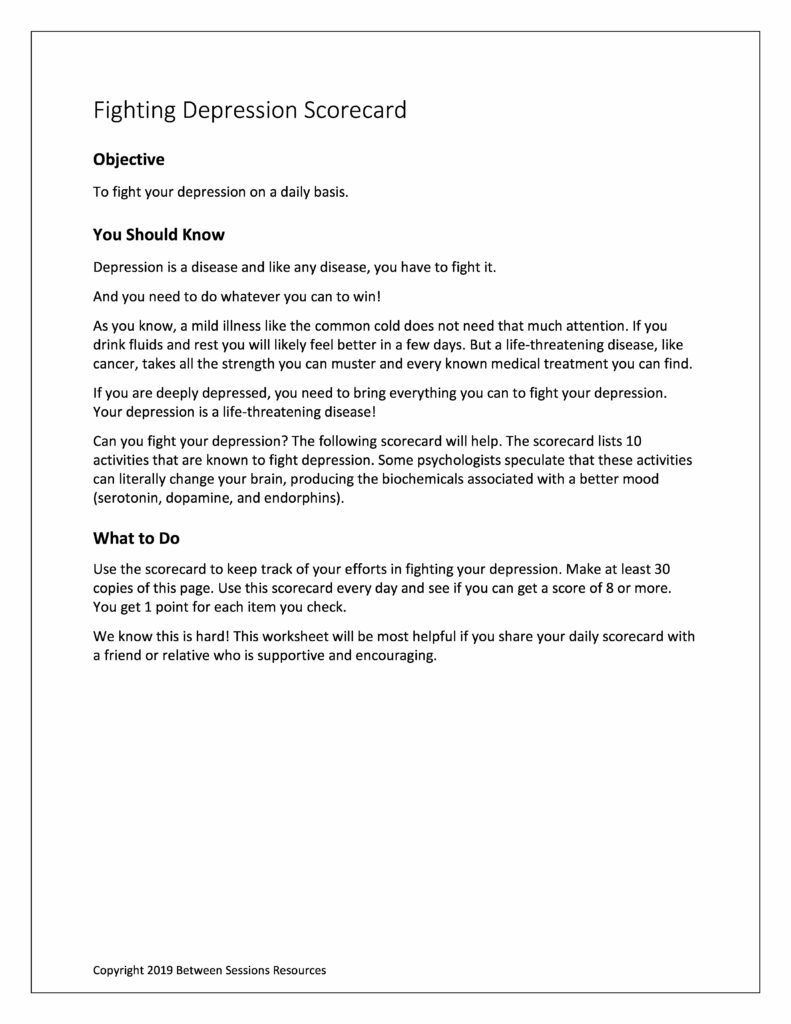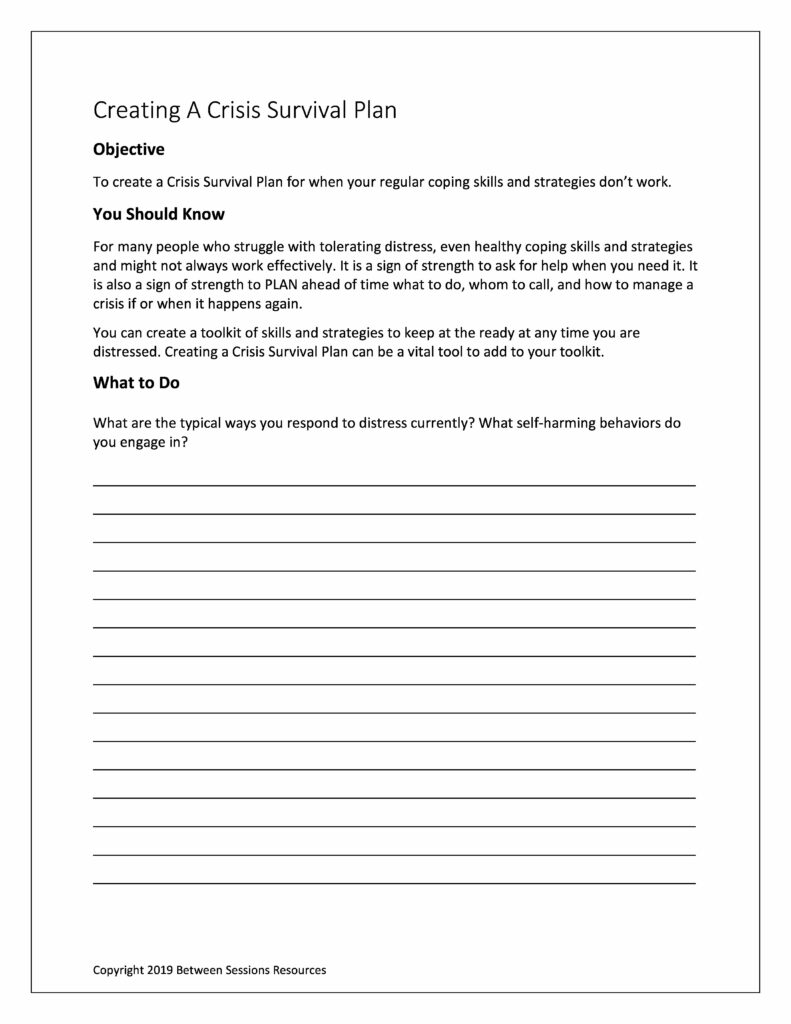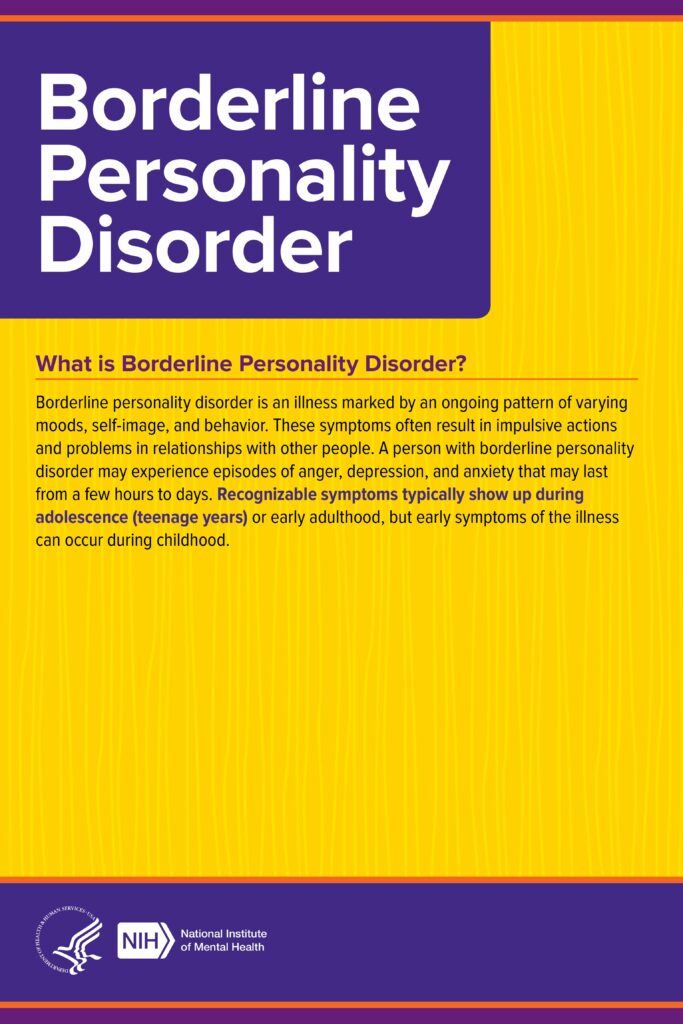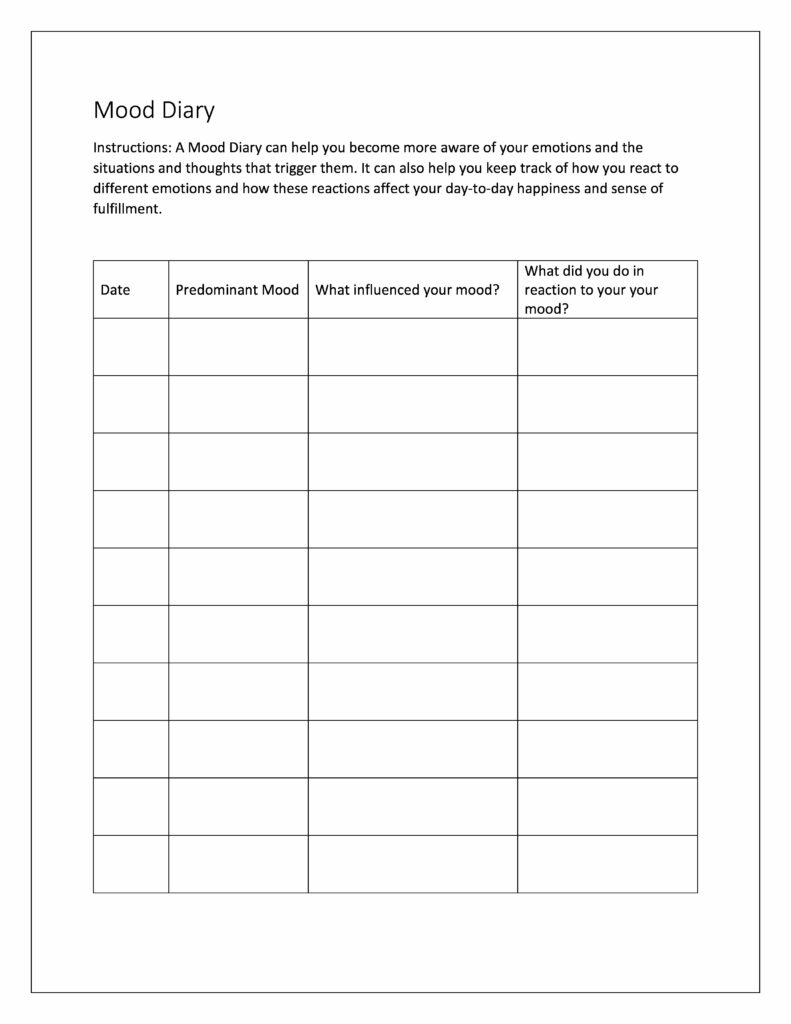This worksheet helps people examine their upsetting thoughts and feelings rather than trying to avoid them. (0621, anxiety, worry, avoidance, simple solutions)
This worksheet asks teens to think about places they feel safe and unsafe as well as places where they are uncertain about their safety. It also asks teens to think about what to do when they feel unsafe and who they can ask for help. (abuse, safety, risk, impulse control, 0321)
This worksheet is designed to help people become aware of their critical inner voice that can lead to self-hatred. The worksheet asks people to identify their self-statements and change them to more realistic and forgiving statements. (depression, self-criticism, automatic thoughts, CBT, 100720)
This worksheet is designed to help people understand their relationships. It is intended to help people see that there are ways to build more stable relationships built on trust and understanding. (Personality Disorder, Bipolar, Narcissistic Personality Disorder, relationships, community, 0920)
This worksheet is designed to help people learn to observe and better understand their overwhelming emotions and the way they cope with them. (DBT, Emotional Regulation, 0320)
This worksheet is designed to help people deal with overwhelming emotions, depersonalization, and derealization. It directs people to pay attention to sensory input as a way of becoming grounded and feeling in control. (Bipolar Disorder, grounding, emotional regulation, DBT, 1119)
This worksheet challenges depressed clients to do 10 things each day to fight their depression and to keep track of their behaviors and moods for a month. The suggested activities are known to increase mood elevating biochemicals in the brain. The activities will also help people with anxiety and other mental health problems (1019).
This worksheet is designed to help people create a Crisis Survival Plan for when their regular coping skills and strategies don’t work. (DBT, suicide, self-harm, self-injury, 0419)
This brochure from the National Institute of Mental Health explains the basic facts and treatment options for Borderline Personality Disorder. (0319)
This simple Mood Diary can help clients keep track of their predominant mood each day, what influenced their mood, and what they did in response to their mood. (0219, emotions, log)

